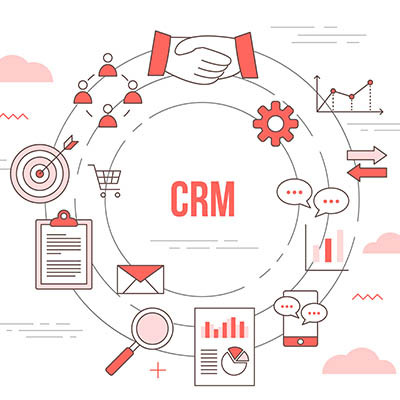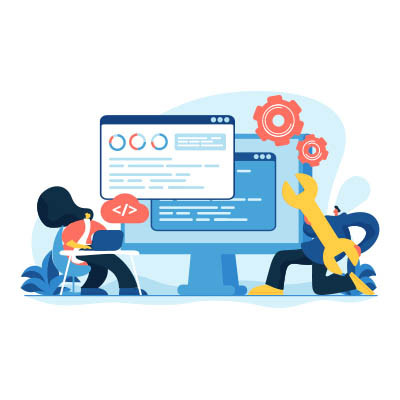Technology touches nearly every facet of our lives. They make smart toothbrushes if you want it to touch every facet of yours. As a result of being such a tech-driven society, there were opportunities for businesses to set themselves apart by appealing to the incendiary demand for more. Today, we just wanted to point out that, while it has happened throughout the information age, today’s top tech companies are some of the most powerful ever.
WatchPoint Solutions Blog
Windows PowerToys is a set of cool tools that can make your workday easier, if you know how to use them. Let’s take a quick look at some of the most useful ones for businesses and how you can put them to work.
Before we dive in, just a heads-up: these tools aren’t something you should install just anywhere. It’s always best to have a trusted IT professional handle software installations on business computers, whether that’s our team at WatchPoint Solutions or another reliable provider. That way, everything is properly managed and documented.
Downtime is a business killer, and if you’re not actively monitoring your network to keep it to a minimum, you’re doing yourself and your business a disservice. Downtime can be defined as any time when your organization is not operating as it’s supposed to, and it must be controlled at all costs. Otherwise, you’ll run into the following three issues that are difficult to deal with.
Data backup may not be at the forefront of your business’ technology list, but it needs to be a consideration. Like much of the technology we use for our businesses, backup is going through a lot of positive innovations at the moment. Let’s take a look at five things that are going to change the look of enterprise data redundancy.
In the pursuit of harnessing data effectively, businesses use various strategies like business intelligence and artificial intelligence integration. Accurate and reliable data is very important. Wrong data can cause mistakes and give wrong information. Thus, understanding how to clean or scrub data is essential for anyone involved in business intelligence or AI. This guide will explore data cleaning and provide a simple starting point.
Regardless of your industry, size, or business model, you must satisfy your customers and clientele. Your business’ survival ultimately depends on your ability to do so effectively.
In light of this, embracing every opportunity to deliver for your audience makes sense. One means of doing so is through modern business technology. Let’s discuss one of the options available to you—customer relationship management—and why it is so helpful.
A lot is made of the rising costs that everyone is seeing over the past several years. This inflation extends itself for IT-related downtime as well. Now that most businesses are using some form of technology to run their business, losing access to those systems for any length of time can be a major problem. Today, we’ll take a look at the cost of downtime, what causes it, and how to ensure that you do everything you can to keep it from negatively affecting your business.
Even slight problems with your IT infrastructure can lead to costly downtime and setbacks you’d rather not have to deal with. Today, many IT-related problems can be addressed before they cause notable differences in your operations. All you need is access to a team of professionals like the folks at a managed service provider… like ours!
Managing a business requires skill, but it also requires knowledge of what to do and how to act in certain situations. Failing to have the appropriate strategy for the appropriate time could lead to poor decision-making, or worse. Today, we want to explore some of the important things a business owner should remember as they relate to your software strategy.
Your HR department is crucial to the success of your business. Still, since it doesn’t technically create revenue for you, it’s easy to see why some companies might spend money elsewhere rather than invest in HR spending. With the right tools, you can automate much of the work your HR department would typically be responsible for. Here are some of the benefits of automating your HR.
Your business should actively work to maximize its customer potential, and the only way to do this is through a customer relationship management tool, or CRM solution. If you’re using a CRM to the best of your ability, you can use your existing client base to make more money while also bringing more leads to the table.
One of the most exciting milestones a business can achieve is growing to the point where it needs a larger office space. While this is indeed a good thing and indicative of many of the most important parts of running a business going well, it can also be stressful to imagine how you’re going to move an entire IT infrastructure from one location to another.
You likely have employees who work outside the office at least some of the time, if not working remotely all the time. Therefore, you owe it to yourself and your business to equip your team with the tools and resources they need to be successful. We recommend that you carefully consider the technology you provide for your employees, especially when they work out of the office part of the time, as well as how your team will access these tools and resources.
What kind of cloud service does your business use, if it uses the cloud? There are private clouds, hosted and maintained on-site, and public clouds, where an external business will host and provide it on a subscription basis. While there are certain scenarios in which a private cloud is quite valuable, today, we want to focus the discussion on the more common of the two: the public cloud.
Running a business can be really hard and filled with difficult decisions. Some of the most important surround the policies that make it possible to retain your employees; and ensure that they are effective at the job you are paying them to do. In today’s article, we talk a little bit about how problematic it can be when you are forced to deal with a workforce that has a high percentage of turnover or employees that are too distracted and burnt out to be effective.
Businesses are increasingly reliant on technology, and effectively managing IT support costs has become crucial. With approximately three to six percent of a company's revenue allocated to technology expenses, exceeding the monthly budget can have adverse repercussions on the ability to allocate funds elsewhere.
Downtime in a business context can be considered a "business predator" because it can have detrimental effects on a company's operations, profitability, and overall success. Downtime refers to the period during which a business' critical systems, processes, or equipment are not functioning as intended. Here are some reasons why downtime is often seen as a threat to businesses.
Financial Impact
Downtime can result in significant financial losses. When key revenue-generating systems or production processes are unavailable, businesses may lose sales, incur extra expenses, or face penalties for failing to meet contractual obligations. Downtime can also prevent a business from pursuing new opportunities or responding to market changes. In a rapidly evolving market, missing out on opportunities can have long-term consequences, and can be the difference between business growth and stagnation.
Operational Impact
Downtime leads to decreased productivity as employees cannot perform their tasks efficiently. This results in wasted time, missed deadlines, and a drop in overall output. In cases where downtime is due to data loss or system failures, it can result in the loss of critical information, which can be difficult or impossible to recover. This can have severe consequences for businesses, especially when it comes to sensitive or irreplaceable data. Frequent downtime can demoralize employees who must deal with the frustration and stress of interrupted work. Low morale can lead to higher turnover rates and decreased employee engagement.
Customer Impact
Prolonged or frequent downtime can do significant damage to a company's reputation. Customers and partners may perceive the business as unreliable, which can be challenging to overcome. Also, these unfortunate companies may find it challenging to compete effectively in markets with companies that show better reliability.
If you struggle with downtime, you can do better. If you don’t, you need to ensure that continues. The IT professionals at WatchPoint Solutions can help. We can introduce you to technologies and strategies that are designed specifically to reduce downtime and improve operational efficiency. Get a professional perspective by calling (848) 202-8860 today.



















